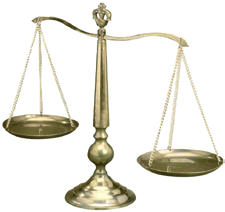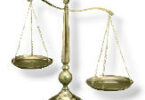by Yana A. St. Clair, Esq.
Cops and Drones, are they our friends or foes?

In our last issue we started a discussion on drones, also known as Unmanned Aircraft Systems (UAS) and the various Federal and State regulations pertaining to their use. As we briefly touched, drones can be very fun for personal use, they can also be a great asset for educational purposes, whether for your little ones, or for your class. But as with everything in life, there is a dark side to all, including these fun, futuristic gadgets. In the case of drones, the flip side of this fun motorized kite, is that it can be used to commit crime, and so here we go…
Drones are an invaluable asset in the hands of law enforcement, as they may assist officers in expeditiously catching suspects and predators, but many believe that certain rogue cops may also use the handy devices to violate peoples’ constitutional rights, bringing us back to our favorite 4th Amendment. But on the other hand, if we choose to believe that the people sworn to protect and serve are truly out there to do their jobs, and keep us safe from the bad guys, as they should, then we need to take a look at their ability to utilize the law to protect all of us from the unsafe and harmful operation of drones.
The latter is worthy of due attention as it is rather terrifying to contemplate the numerous possibilities of potential drone misuse. Aside from the embarrassing consequences of simple voyeurism, aka a peeping tom, meaning your neighbor spying on you in your backyard or bedroom, there are the more unsettling consequences of a “recreational user” employing his drone to commit a much more destructive crime such as to sabotage a power station, or cause of a forest fire, just to name a few.
For this reason, today we will focus on the resources available to law enforcement for the protection of the public against drone misuse and violations, and in an upcoming issue we will address some apparent public concern over the abuse of drones by law enforcement themselves, and here we go:
Pursuant to the Federal Aviation Administration (FAA):
Federal Aviation Regulations prohibit the unsafe or unauthorized operation of an aircraft, including drones. Unsafe operations may result in substantial civil penalties and possible action against an operator’s FAA-issued certificate or may be subject to criminal response by law enforcement in accordance with local laws and ordinances.
Thereby law enforcement officers are often in the best position to deter, detect and investigate unsafe or unauthorized drone operations.
The FAA is responsible for the safety of U.S. airspace. There are multiple options to fly a drone legally, however if an operator chooses not to follow those requirements, he/she could face civil penalties and potential criminal prosecution:
The FAA further provides law enforcement with a checklist that they refer to as the FAA’s UAS Law Enforcement Pocket Card, which helps officers to:
- Detect all available elements of the situation.
- Attempt to locate and identify individuals operating the drone. (Look at windows/balconies/roof tops)
- Report the incident to the FAA Regional Operations Center (ROC). Follow-up assistance can be obtained through FAA Law Enforcement Assistance Program special agents
- Observe the UAS and maintain visibility of the device; look for damage or injured individuals. Note: Battery life is typically 20 to 30 minutes
- Notice features: Identify the type of device (fixed-wing/multi-rotor), its size, shape, color, payload (i.e., video equipment), and activity of device
- Execute appropriate police action:
- Maintain a safe environment for general public and first responders
- Conduct a field interview, request proof of UAS registration, and document ALL details of the event per the guidance provided by the FAA
While we are certainly not taking a stance on the involvement of drones for police use one way or another, I hope to illustrate how serious law enforcement takes the use, and abuse, of drones.
Disclosure: Please note that none of the information contained within the above column is to be considered legal advice.
Biography

Yana is an American attorney licensed to practice in all State and Federal courts of California. Yana holds a Bachelor of Arts Degree in Political Science specializing in International Relations from UCLA, the Degree of Juris Doctor from Loyola Law School, and a Master of Business Administration Degree from Ashford University. Since the beginning of her undergraduate studies, Yana has been involved in various aspects of the field of Electrical Engineering, where she employs her business and legal knowledge to consulting and advising businesses and individuals on relevant topics of concern. Yana also serves as Editor for PACWorld magazine, having been with the publication since its inception. As an attorney, Yana specializes in criminal defense, where she devotes her talents and expertise to fighting for her clients’ rights and freedom.









